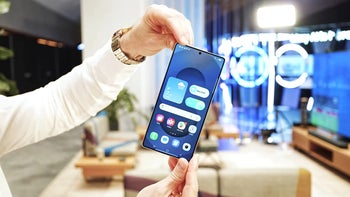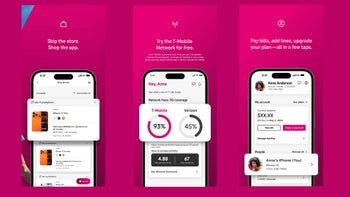"Samsung has been researching and developing mobile telecommunications technology since at least as early as 1991 and invented much of the technology for today‘s smartphones. Indeed, Apple, which sold its first iPhone nearly twenty years after Samsung started developing mobile phone technology, could not have sold a single iPhone without the benefit of Samsung‘s patented technology."-Samsung court filing
Them thar's fightin' words! After a brief from Apple's camp revealed on Tuesday that
the Cuppertino based firm wants $2.525 billion from Samsung to cover what the Korean based manufacturer "unjustly enriched" itself with by using Apple patents, Apple might have insulted Samsung by claiming that
Sammy's patents are worth about a half-cent each, at most. Samsung's filing, partially released today by the Wall Street Journal, is a history of the mobile phone industry. Samsung tells Apple that it wouldn't have sold one Apple iPhone had it not stolen Samsung's technology.
Some interesting passages include Samsung's claim that
Apple sold its first smartphone 20 years after Samsung first developed the technology that made the mobile phone possible. Samsung claims that some of the impetus for the Apple iPhone's design came from a story about Sony products that was in the public domain. In the story, the Sony designer discussed its products that fit in the hand, lacked buttons, were "
square with a screen" and had rounded-out corners.
"Apple‘s utility patents relate to ancillary features that allow users to perform trivial touch screen functions, even though these technologies were developed and in widespread use well before Apple entered the mobile device market in 2007. Samsung does not infringe any of Apple‘s patents and has located dead-on prior art that invalidates them."-Samsung court filing
An interesting paragraph from the filing touches on Apple's penchant for commercializing other firms' technology. Samsung also pointed out that in 2006, well before the Apple iPhone was introduced, the Korean manufacturer had internal documents showing rectangular phones with rounded corners, front faces that were flat and graphic interfaces using grid layouts for icons. Samsung adds that in the Summer of 2006, again before the introduction of the Apple iPhone, Samsung started to design its next-gen handsets. Samsung engineers started to work around the concept of a round rectangular body with a large screen taking up much of the space, and one physical button. The point being made by Samsung is that it had
already had this design in place before the iPhone was introduced. Samsung says it did not change its design after the introduction of the Apple iPhone.
In the filing, Samsung says that Apple relied "
heavily" on Samsung technology to enter the mobile phone business and it still does today. Apple buys some parts for its smartphone from Samsung and the filing lists both the flash and main memory as well as the applications processor. And while there is nothing wrong with that, Samsung claims that
some of its patented technology is being used by Apple without paying for it. After Apple released products that use the two Samsung patents at issue in the trial, Samsung says it offered Apple a cross-licensing deal similar to what most other major players in the industry agreed to. Unlike the others who had signed the deal with Samsung, Apple's position was that the Samsung patents were un-enforcable, which brings us to this patent battle in front of Judge Lucy Koh that will start at the end of this month.
"Apple relied heavily on Samsung‘s technology to enter the telecommunications space, and it continues to use Samsung‘s technology to this day in its iPhone and iPad products. For example, Samsung supplies the flash memory, main memory, and application processor for the iPhone. . . . But Apple also uses patented Samsung technology that it has not paid for. This includes standards-essential technology required for Apple‘s products to interact with products from other manufacturers, and several device features that Samsung developed for use in its products."-Samsung court filing
source:
WSJ
Read the latest from Alan Friedman













Things that are NOT allowed:
To help keep our community safe and free from spam, we apply temporary limits to newly created accounts: